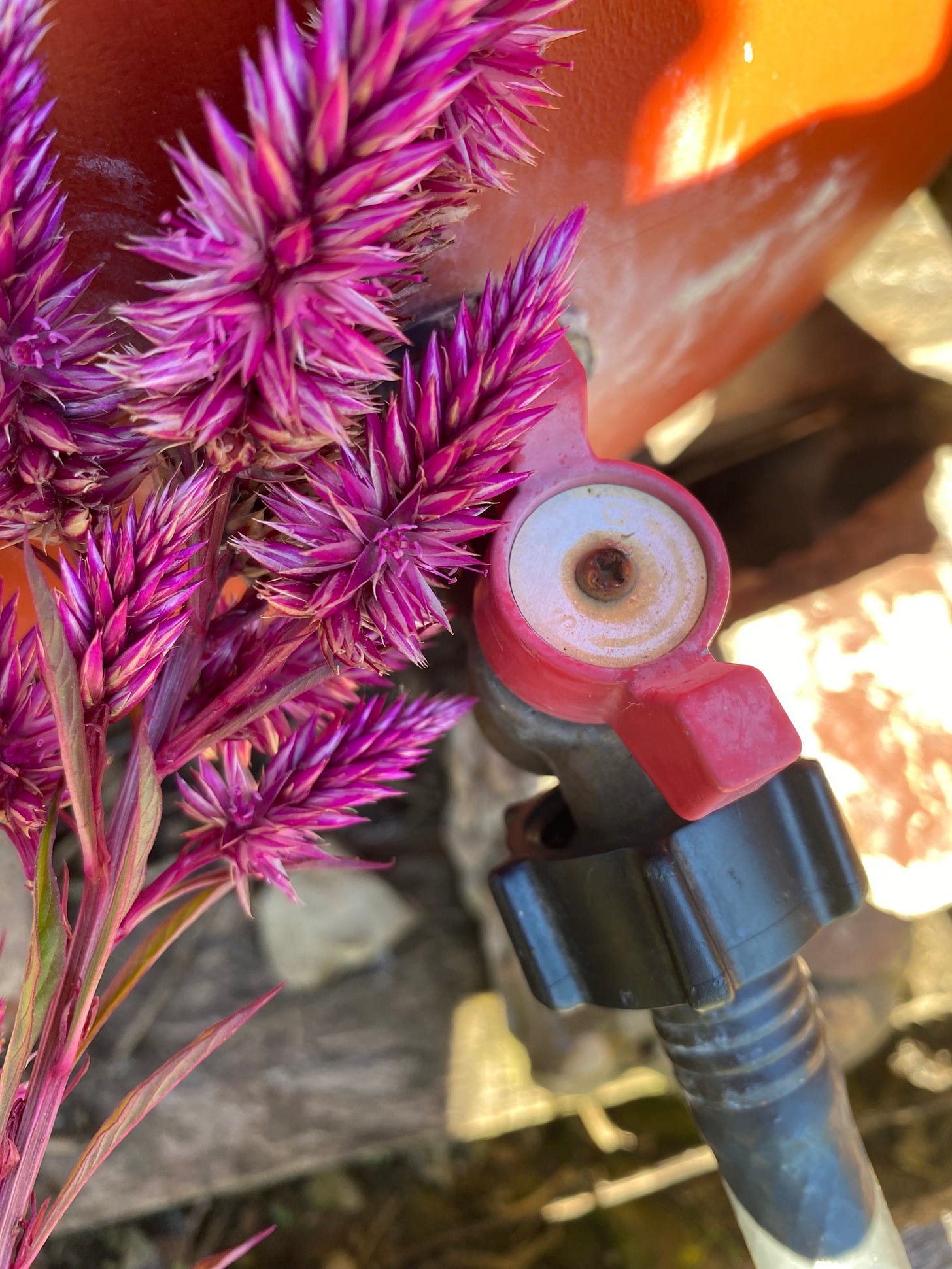Yesterday: I am standing in plumbing aisle at my hardware store, staring at the shelf and trying to make sense of a photo on my phone of a scrap of paper with a detailed list of specific plumbing supplies that don’t seem to exist. I shouldn’t be here, 500 miles away from where these plumbing supplies are needed in Western North Carolina.
If we had a society where we were granted the time and support to form functional communities based on mutual aid, and didn’t have to work constantly to be able to meet basic needs while rich people hoard money, if we were taught in (free) schools how to communicate kindly and effectively, work in groups, work with tools, understand infrastructure, then sure, it would make sense for a climate-disaster to be met with groups of friends and political collectives providing the basic needs of their communities. But as it is, it doesn’t.
Every day since the climate disaster hit Western North Carolina, my friends have been filling up their truck with water pumped from their off-the-grid well, and bringing it to the assisted living facility and homes and trailer parks in their area. All day, every day, bringing water to people. They are exhausted. Everyone is overwhelmed and exhausted.
NPR and other media makes it seem like things are more or less ok. Lots of feel good stories, and little quotes from people in places that haven’t been as effected. Stories of pack mules, kayakers, helicopters, 2 gallons of water per person. Nothing that paints a picture of how truly awful everything is, and the epic proportions the recovery will take.
A friend who was there tells me of waking up to a tree hitting the house she was sleeping in. Going down the road to try to see what was happening, and seeing 500 gallon propane tanks floating down the torrent that was once a calm river. Seeing the tanks bob under when they approached the bridge, and then bob up, hit the bridge, and crack open. Gas fumes enveloping her as she ran the other direction. Another person writes about thinking she had poison ivy but it turns out it’s chemical burns.
I have felt very cynical these past handful of years about the ability of society to change in any kind of fundamental way. I hold on so hard to the mantra “We don’t need hope to survive or success to persevere, resistance to tyranny is a way of life.”
When people I work with don’t know what to do to be effective in their lives in this state-of-the-world nightmare, I sometimes ask them what they would imagine themselves doing in the post-apocalyptic utopia, and then using that as a guiding light. Find what is aligned to or parallel to that desire. Or I ask them what basic infrastructure skills feel the most interesting (whether it’s concrete things like gardening or health care, or less tangible skills like writing or theater), and then learning those skills, assuming they will someday be needed.
And if this is what it’s going to be, the world falling apart with absolutely no structure to catch it, then every structure we can make now, and put in place matters. It is the relationships that matter, having a group of people who you’ve known, who you’ve worked through things with, who you kind of understand. A band, a reading group, a gaming group that does occasional in-person political actions, a political collective, an advocacy group, a health care collective, an affinity group. Some people who you know well enough that when something catastrophic happens, you know you can work together on some project in response to it, even if you don’t know what that is yet
donate:
https://www.poderemma.org/home
https://ruralorganizing.wordpress.com/donate/






